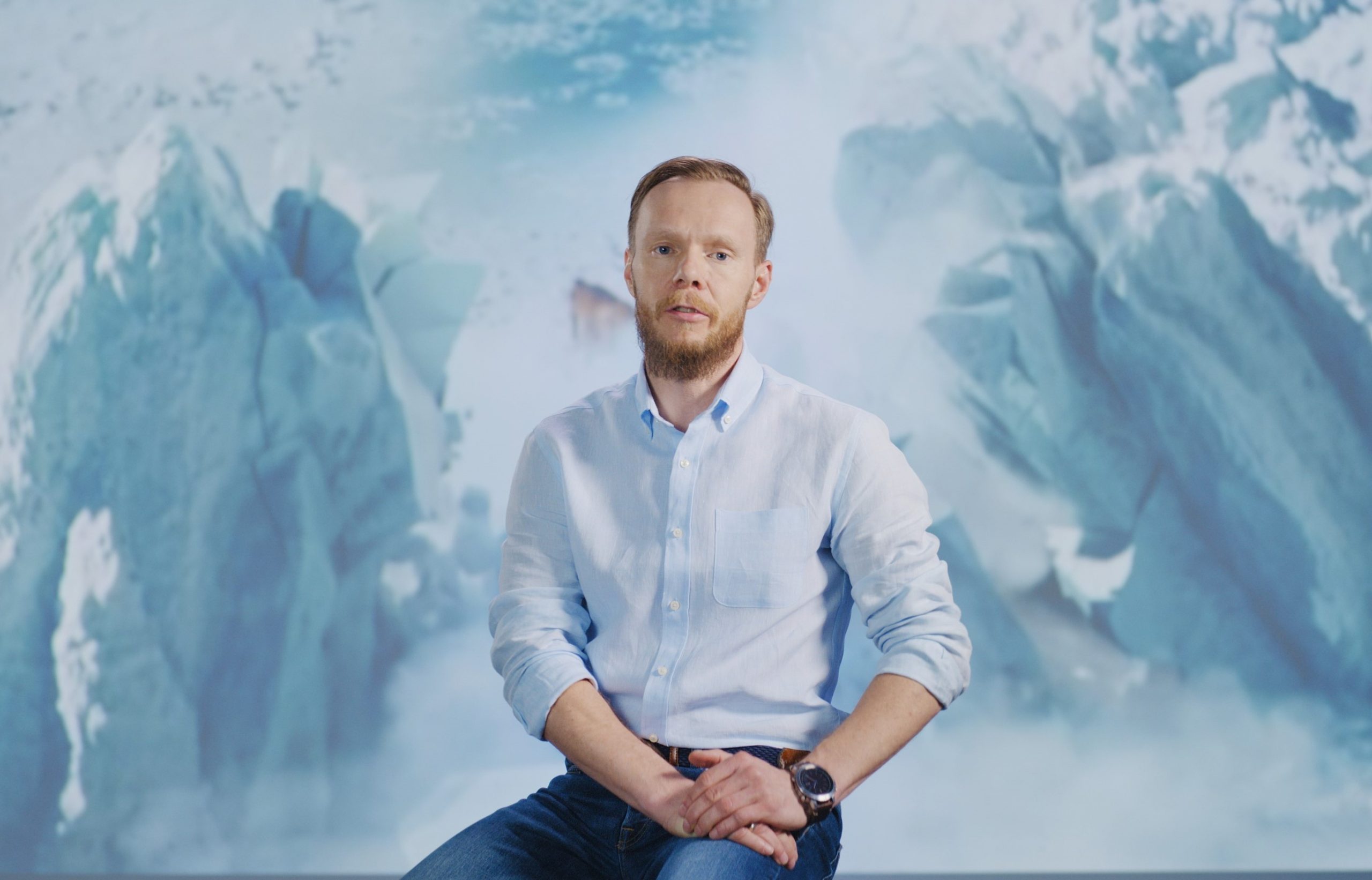

We place somewhere between those that love meat and want to eat it and those who want abandon eating meat – Pawel Nowak, Goodvalley Poland
There is currently huge pressure on adjusting company functionality to stipulations in accordance to sustainable growth, but Goodvalley reached zero carbon emissions way back in 2013. What deciding factor made you take these actions long before anyone else?
Back in 1994, when we were founding our company, we steered in the direction of limiting negative impacts on the environment and surroundings. Over nearly 30 years we gained new knowledge, access to technology, but our philosophy stayed the same. We want to continue being a responsible company that cares for the climate and future generations.
In 2005 we opened the first farming biogas plant, which has brought us substantially closer to climate neutrality. Eight years later, in 2013, we reached our goal and we became the first meat processing company in the world to be certified as zero carbon emitting.
Our integrated strategy of production starting from farms to consumers tables has many advantages. On the one hand we limit our impact on the climate, that is by eliminating long distance transport, implementing environmentally friendly farming technologies. On the other hand, at each phase of production, we have full quality control over our products and influence on the well being of animals and work conditions in our company.
Im happy that our balanced production model, which we started at Goodvalley many years ago, is appreciated by policymakers, the industry and consumers. Implementing this model in other food companies will allow us to ensure the best quality and quantity of food for a growing population and it will not harm the planet.

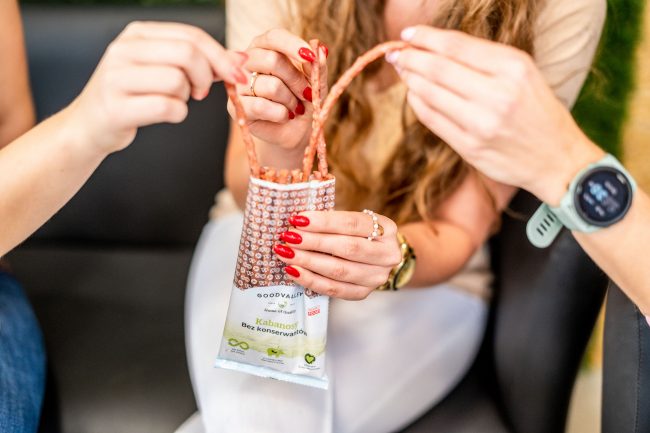

Your products stand out due to absence of chemical preservatives. Does food production with this in mind create a bigger challenge? Does it come with limitations?
I would like to begin that conserving food doesn’t have to be a bad thing. Long ago our grandmothers and great grandmothers preserved food in jars, pickling cabbage, pour vinegar on vegetables, drying and preserving meat, in order to store in the pantry to be able to enjoy these flavours in the winter.
During our production process we make sure we do not add chemical preservatives. We believe this is unnecessary while applying an appropriately short chain of production or food technologies. Today this is not really a challenge, but it does require a level of discipline and a holistic approach. How does this process look at Goodvalley? I will again backtrack to our balanced production model; from farm to table. We don’t have complicated chains of supply, we don’t store our products for long periods of time, we use onlly natural ingredients. This is why we do not need to add preservatives, so our products will be of best quality and stay fresh.

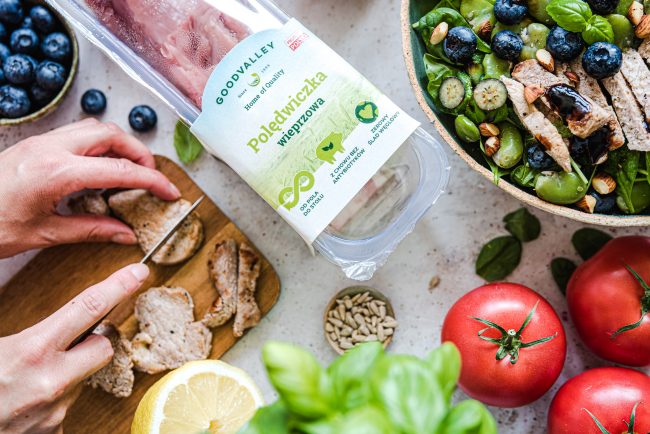

Aim of your strategy ‘from farm to table’ is assuring that your food is of the highest quality, free of pesticides and directed at organic farming. How does it look from your perspective?
The difficult challenge facing us is tied in with a growing world population and maintaing a balance between industry, growth of civilization and nature. For many years we have been seeking food that is mass produced at minimal costs, low in price. At the same time, much of that food ends up in the waste bin. For me personally It’s hard to deal with, especially looking at long term effects on peoples health and the planet well being.
I see two solutions to this problem. On the one hand our previously mentioned „from farm to table” model. According to me it is the perfect model for future production of food! Model in which all phases of the supply chain are at close distance to each other, transport, use of fertilizers or food additives are kept to a minimum. This model used at Goodvalley which is a shining example of caring for the planet and its people.
On the other hand is the customers approach. It is said that about 30% of food is wasted. Isn’t it better to think it through, do I really need another yogurt? Maybe on Sunday instead of eating meat, it would be better to eat a meal without meat? Are awareness and mindfullness to our approach better than throwing away food, which is scarce in many regions of the world?
For some these are rhetorical questions, but the numbers behind them and wrong mindset are formulated from a young age. We have to learn what, how and when and how much to spend, so food is good for us and doesn’t harm the planet.
We at Goodvalley implemented the sustainable model of production ‘from farm to table’ and apply this philosophy in all aspects of our business process.

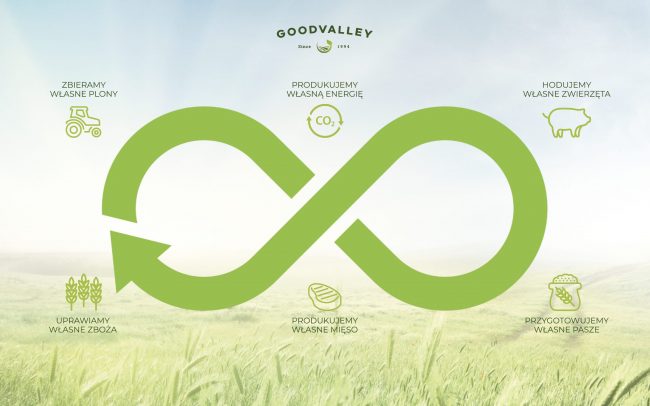

There is a lot of talk recently about mean production from the so called lab vile in the context of future food. According to Bill Gates, the wealthiest countries have to limit or switch to consuming meat that doesn’t come from mass pastures, to noticably reduce our carbon footprint. What do you think about this? What are the chances of implementing this type of solution on a global scale?
I don’t want to negate accomplishments by science and civilizational progress. Whereas I foster many doubts to these types of solutions and especially their implementation on a mass scale. At this moment, for many of this is science fiction, out of reach and expensive.
Truth is, mankind has always evolved and discovered different things, which either became widely accepted and changed our lives or became forgotten. I do however believe our planet is intelligent entity, turning to nature and searching for solutions that obey her laws. Our philosophy is; in everything we do, we follow ethics and we respect to man and nature. Result is, as it turns out, even meat can be produced responsibly, with zero carbon footprint.
Follow up to the previous question – what future awaits the meat industry? Can we predict what the market will look like in 10 or 20 years?
I will say it very openly – the meat industry must drastically change! Unfortunately the image and stereotyples, that concern us, are somewhat were brought about by our own actions. Chase after profits at the cost of product quality, lowering of prices and mass production were bringing companies what is most important to them. That being, producing good quality products while keeping in mind the state of animal farms, respecting the consumer and environment and focusing on the supply chain.
Whether we like it or not – there will be a revolution. Despite that today our postulates regarding the limiting of our meat intake are criticized, I believe this is the only direction to go. Ha, consumers themselves are setting it, as they are more often switching to a flexitarian diet.
As I have stated time and again – sustainable production is the only way to go.
Goodvalley has social campaign ad, in which they entice people to eat less meat, but of higher quality. The goal of this campain is caring for the planet, and building an awareness amongst consumers. What made you choose this way of communicating to the Client?
I will begin by mentioning a conversation I had with my parents who are shocked at how much meat Poles currently consume. „It’s insane” – my mom argues. She is not alone in this thinking, as dieticians point out, we consume way too much animal protein, which affects our health.
On the other hand, talk of either eating or not eating meat flares up emotions. Quite often our point of view our planet is tantamount to what is on our plate.
We place somewhere between those that want to love meat and want to eat it, and those who want to abandon eating meat. Caring for the climate in mind and future generations, we ask Poles to consume less meat. If they do decide to eat it – let them choose wisely. What does that mean? High quality product, produced in a ethical manner, with respect to the planet and animals. I won’t sugar coat it, that quality is reflected in price, but looking at it long term – our health and future of our kids are pricless.
I’m more on the side of people that don’t eat meat, which may seem strange, considering I run a meat production plant. I do not hide it, despite the criticism I receive. More important to me is staying true to my values that I believe in.

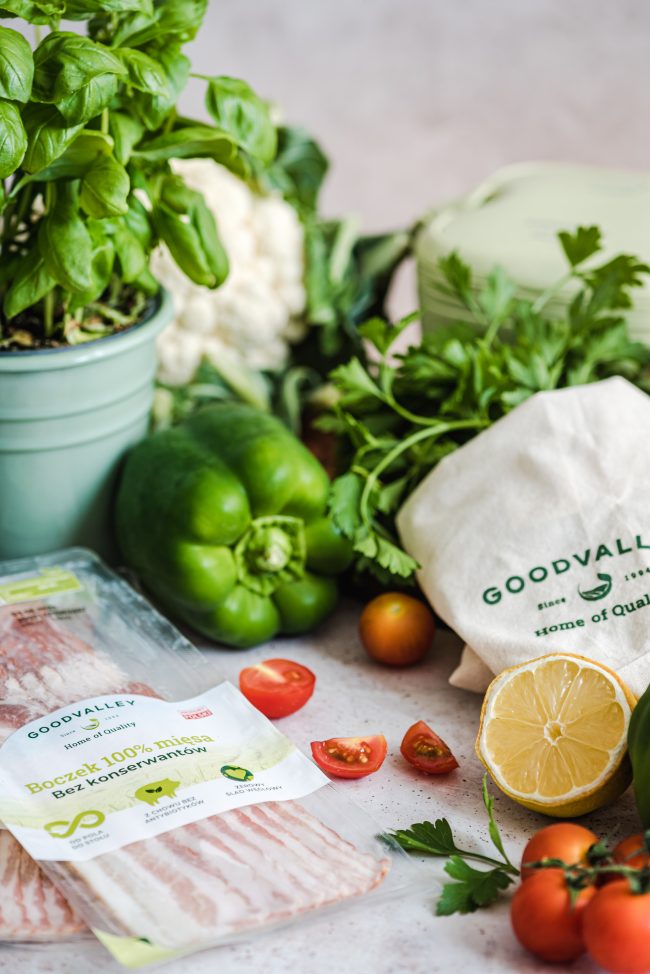

As we can see, your competition is going against consumption trends with plant based production. Would Goodvalley be planning to broaden its product catalogue directed at vegetarians and vegans?
I’m not planning it! Of course, we are observing market and consumer trends, but believe that there’s no such technology that would enable production of plant based food without preservatives and unnecessary substances. Second – it is not according to our philosophy. We believe that products consumed should be processed least as possible with a clean label. Of course, our diet should be balanced, based on vegetables, fruits, wheat and protein products, but those that are healthy, fresh, steam boiled without salt, not mashed up with different substances, which makes vegetables seem like something else.
First of all, honesty towards consumers is in our coded in our DNA. This is why sometimes we encourage them to follow us against the grain, not go in direction of passing trends, but selecting what is best for them.
Paweł Nowak – Has been working in the meat industry for nearly 25 years, 15 of which with Goodvalley. Gained experience in different positions: as meat technology specialist and as a manager in charge teams of workers.
He completes his experience and practical knowledge with education – he is a graduate from West Pomeranian University of Technology in Szczecin at the faculty of Food Sciences and Fisheries, received his Executive MBA at Poznan University of Economics and Business and at Georgia State University in Atlanta.
As president at Goodvalley he is responsible for business operations. Due to his education and experience he works closely with the production department, due to his interests and gained competances is expanding the company in the commercial aspect: sales and marketing.
He is passionate about using his cullinary and nutritional experience when it comes to meat (in 2002 he was awarded the prestigious title of Technologist of the year), about psychology in the field of team management and working with people, he’s interested in marketing, in a broad scope and in chain of phenomena that go with consumer decision processes.
Last Updated on July 4, 2022 by Anastazja Lach